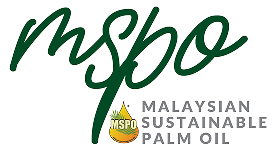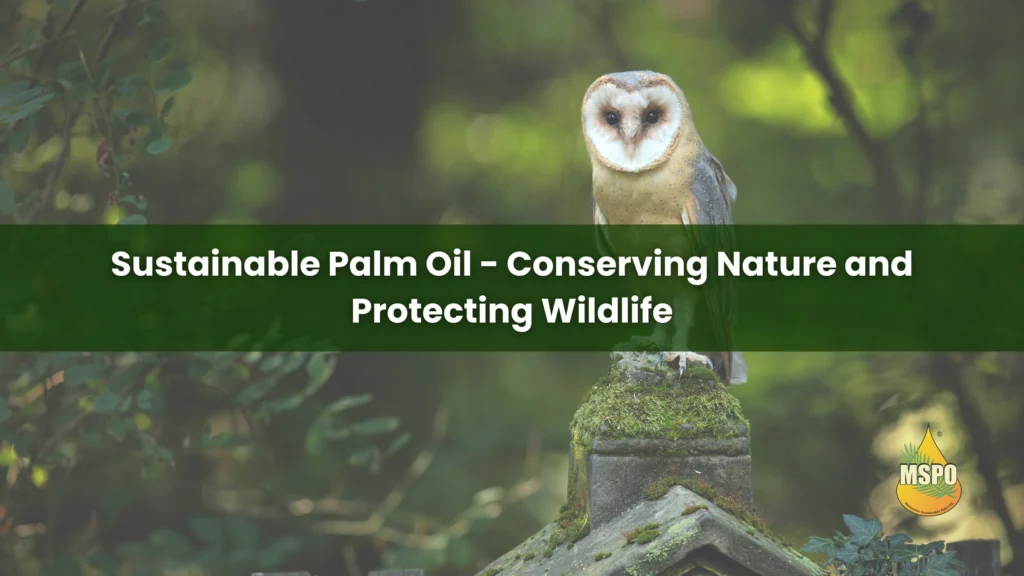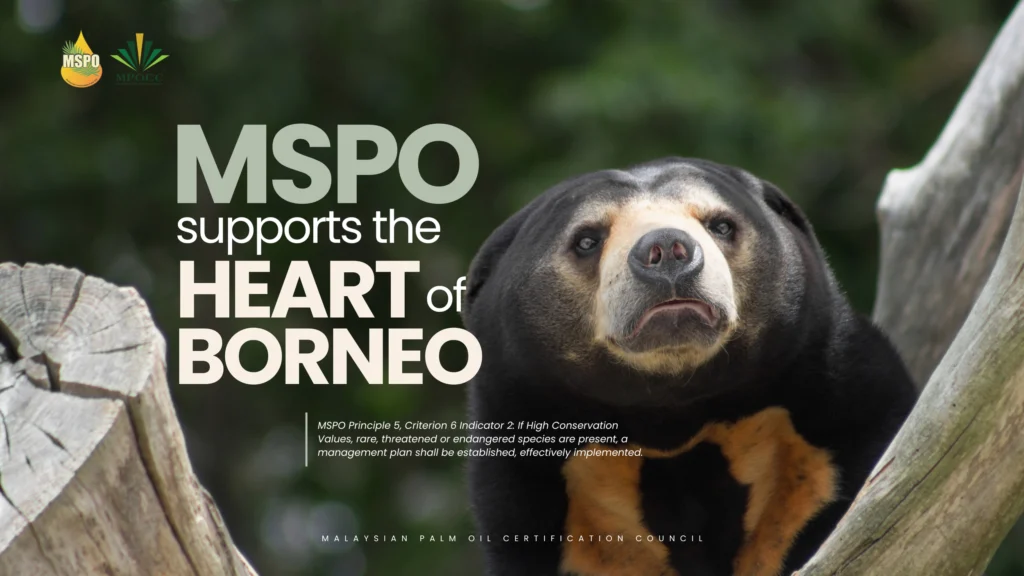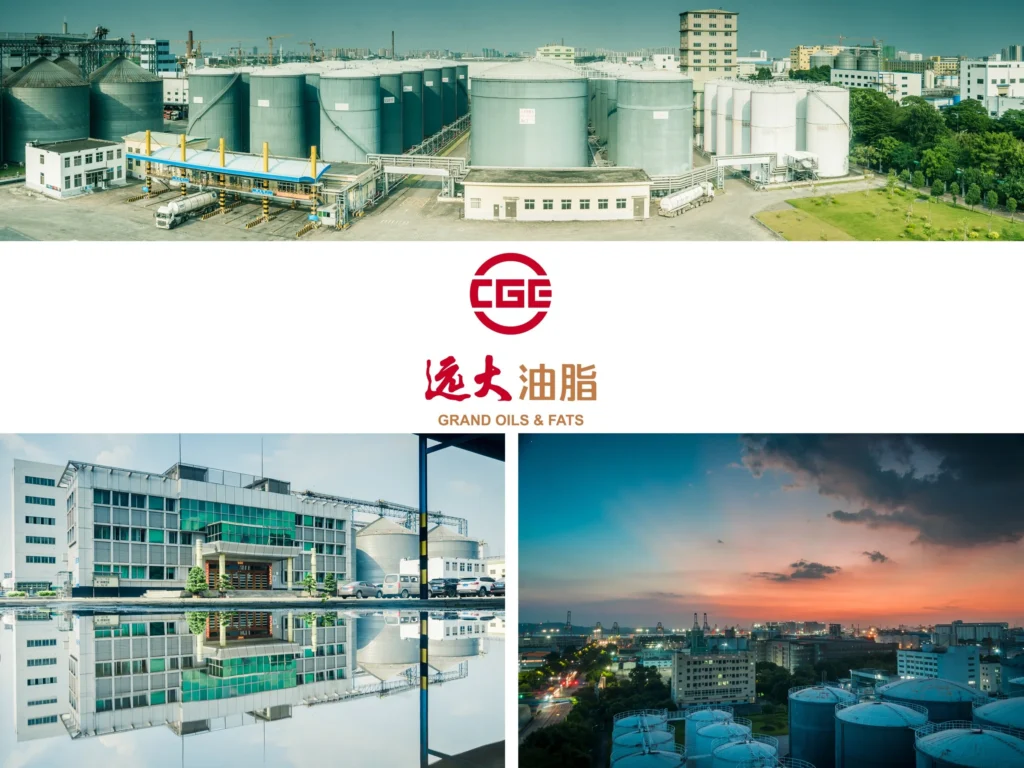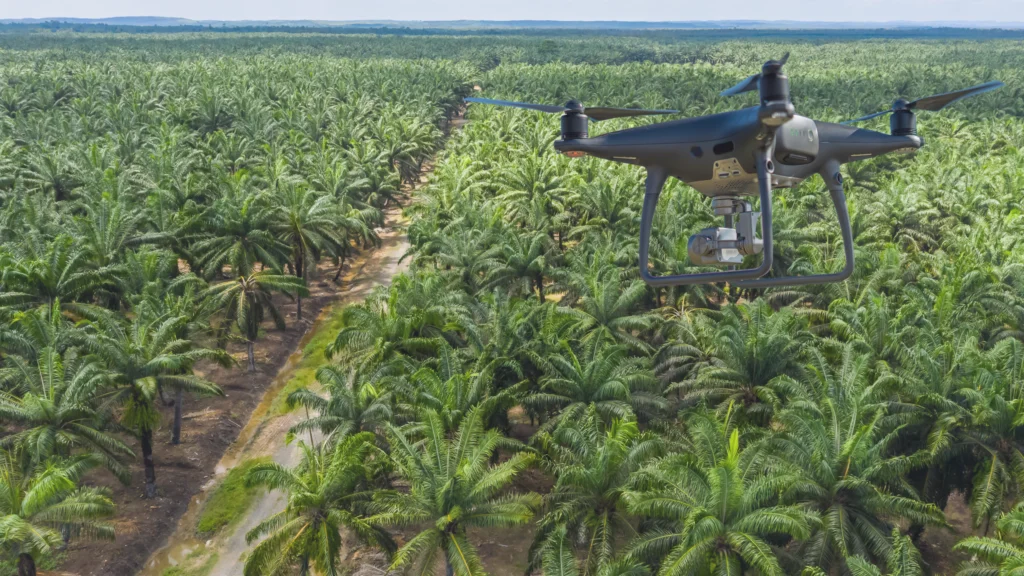Written by Communications, MSPO
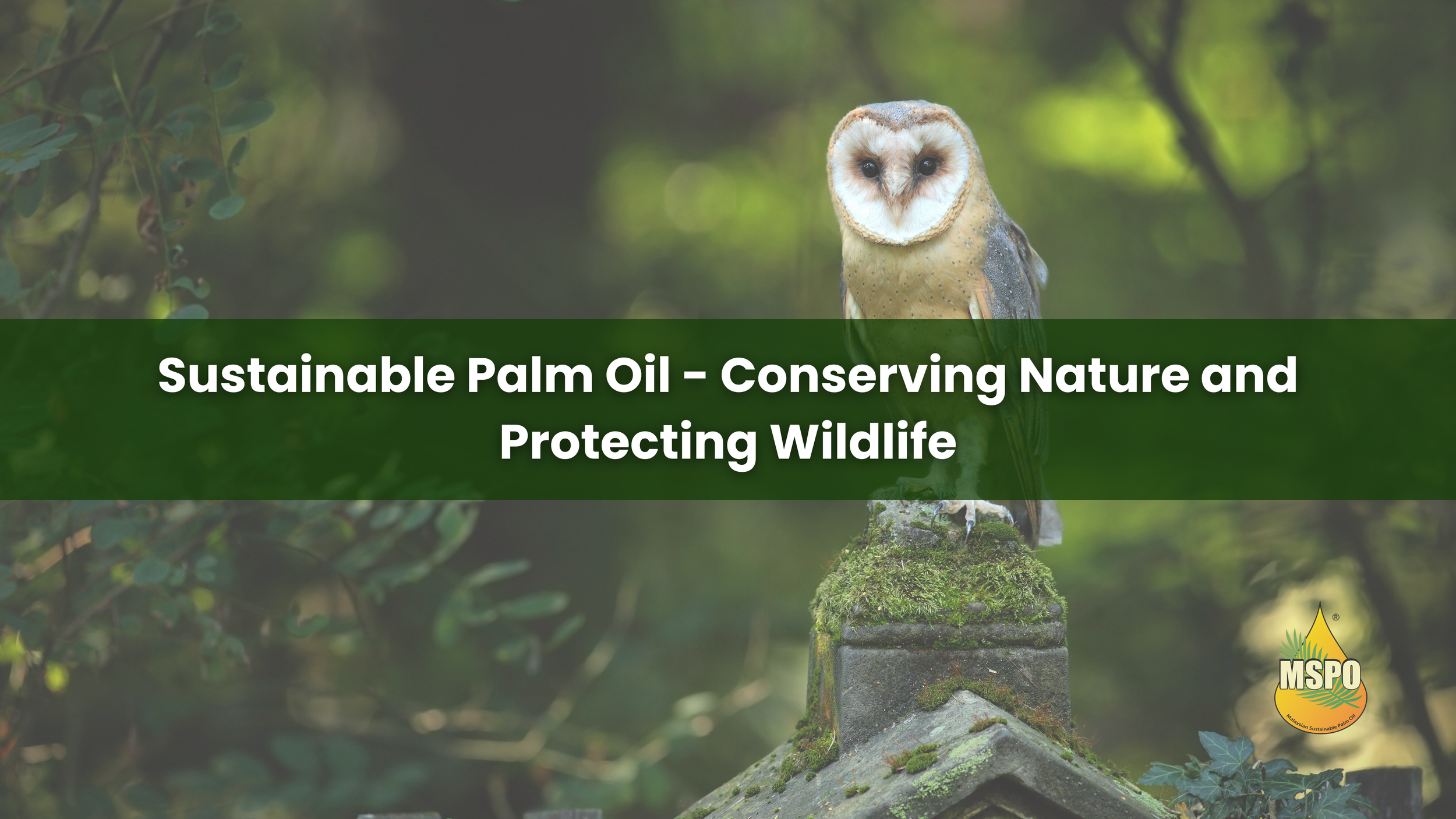
Sustainable palm oil production helps to conserve nature and protect wildlife as it is implemented with the proper environmental and social safeguards. Sustainable palm oil production protects
High Conservation Value (HCV)
areas, such as primary forests and habitats of endangered species which, by protecting the HCV areas and implementing sustainable land use practices, sustainable palm oil production promotes biodiversity conservation and reduce habitat loss for wildlife.
Additionally, support the restoration of degraded land and the creation of wildlife corridors, which encourages the movement and survival of wildlife populations.
Sustainable palm oil producers also implement best practices to reduce the environmental impact of palm oil production, such as minimising the use of pesticides and fertilisers, promoting efficient use of water and energy, and reducing greenhouse gas emissions.
The involvement of community engagement and benefit-sharing can help to ensure that local communities have a stake in conservation efforts and are incentivised to protect wildlife and natural resources.
The MSPO certification scheme
aims to promote sustainable palm oil production by ensuring that palm oil producers in Malaysia comply with a set of environmental, social, and economic standards. These standards cover various aspects of palm oil production, including land management, worker welfare, and community development.
The MSPO certification requires that palm oil producers implement sustainable land management practices, such as minimum tillage and integrated pest management, to reduce the environmental impact of palm oil production. The certification also requires that palm oil producers protect High Conservation Value (HCV) areas, such as primary forests and habitats of endangered species.
In summary, sustainable palm oil production through the MSPO certification can be a tool for nature conservation and wildlife protection if it is implemented with the proper environmental safeguards. By supporting sustainable palm oil production and choosing products made with certified sustainable palm oil, we can help to promote environmentally and socially responsible palm oil production while supporting the livelihoods of smallholder farmers and promoting economic development in palm oil-producing countries.
